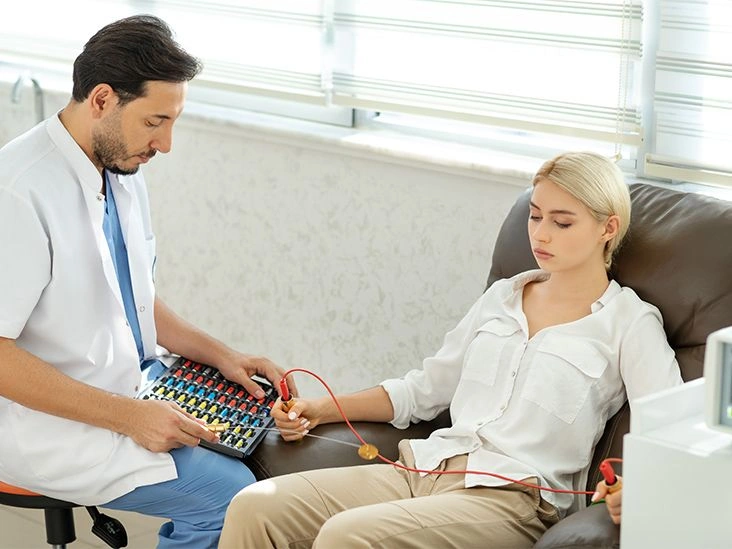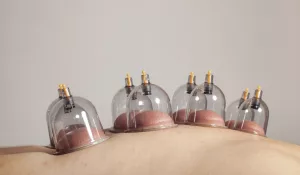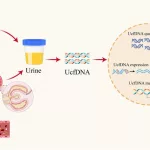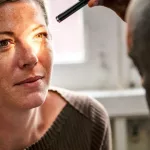Bioresonance is an approach used in complementary and holistic medicine. Despite its popularity in some circles, there is no robust scientific proof that bioresonance can reliably diagnose or treat illnesses.
The technique uses a device to record the frequency of electromagnetic wavelengths emitted by the body, and these readings are then interpreted as diagnostic information. Advocates also claim it can cure certain conditions.
Keep reading to learn more about:
- what bioresonance is
- conditions it has been applied to
- whether it’s effective
- possible risks and side effects
How bioresonance is supposed to work
Bioresonance rests on the premise that diseased cells or organs generate altered electromagnetic signals because of DNA or cellular damage.
Proponents argue that detecting these altered signals can be used for diagnosis, and that restoring the signals to their normal patterns will heal the ailment.
In practice, electrodes are attached to the skin and connected to a device that “reads” the body’s emitted energy wavelengths. This measurement process is presented as the diagnostic step.
Following the reading, the machine is claimed to manipulate those frequencies to encourage cells to vibrate at their “natural” rate, which is asserted to treat the problem.
Conditions bioresonance has been used for
Practitioners promote bioresonance for diagnosing and treating a range of health issues, including:
- quitting smoking
- abdominal or stomach pain
- allergic conditions and related issues such as eczema and asthma
- rheumatoid arthritis
- cancer
- fibromyalgia
- overtraining syndrome in athletes
Is bioresonance effective?
Evidence assessing bioresonance’s diagnostic and therapeutic value is sparse and limited in quality. Below are summaries of research that has been conducted.
Smoking cessation
A 2014 study compared bioresonance for helping people stop smoking with a placebo procedure.
One week after therapy, 77.2% of participants in the bioresonance group reported quitting, compared with 54.8% in the placebo group.
At one year — following a single treatment session — 28.6% of the bioresonance group remained non-smokers versus 16.1% in the placebo group.
Stomach pain
Bioresonance has been applied to abdominal pain. One study reported benefit for reducing nonspecific stomach pain not linked to a defined medical diagnosis.
Allergies and related conditions
Using bioresonance to address allergies and associated disorders like eczema and asthma is among the better-studied applications.
There are several both controlled (placebo-controlled) and uncontrolled observational studies in this field.
Controlled trials are generally considered higher quality because they compare the intervention against a placebo.
Results from controlled trials have been mixed or generally negative regarding whether bioresonance effectively treats allergic conditions.
Rheumatoid arthritis
Some reports propose that bioresonance might influence antioxidant activity in the body, potentially helping to reduce tissue damage in rheumatoid arthritis by combating free radicals.
However, no rigorous, well-designed clinical trials have established bioresonance’s effectiveness for treating RA.
Cancer
Some proponents claim bioresonance can activate tumor suppressor genes or reduce the overactivity of malignant cells, effectively “killing” cancer.
In reality, most cancer-related genetic mutations are not reversible, and there is no evidence from reliable studies that bioresonance can treat cancer.
Fibromyalgia
One study compared a combined approach — bioresonance therapy plus manual therapy and point massage — with manual therapy and point massage alone for fibromyalgia.
Both groups improved, but the group receiving bioresonance reported a 72% reduction in muscular pain versus a 37% reduction in the group without bioresonance.
Participants in the bioresonance group also showed improvements in sleep disturbances and sensitivity to weather changes.
Overtraining syndrome in athletes
Overtraining syndrome, or burnout, happens when athletes don’t fully recover from training and competition.
It can cause:
- increased injury risk
- persistent fatigue
- mood alterations
- sleep problems
- changes in resting heart rate
One study reported that bioresonance helped in overtraining syndrome by:
- restoring heart rate and blood pressure to normal ranges
- reducing activation of the sympathetic nervous system (the “fight or flight” response)
Depression
A small trial of 80 participants suggested bioresonance might be more effective than medication at lessening the severity of depressive episodes, but larger, better-designed trials are required to confirm this finding.
More research is required
As noted, a few small studies report positive outcomes with bioresonance. However, these investigations involve limited participant numbers and overall research on the topic is scarce.
The Federal Trade Commission (FTC) in the U.S. has successfully taken legal action against at least one individual for making unsupported and potentially dangerous claims that bioresonance cures cancer.
The United Kingdom’s Advertising Standards Authority (ASA) reviewed bioresonance adverts and concluded the efficacy claims lacked supporting evidence.
Most medical professionals agree that bioresonance cannot reliably diagnose or treat medical illnesses. At present, there is no clear evidence to support its routine use.
Risks and side effects
To date, research has not identified physical side effects from bioresonance; the procedure is typically described as painless.
The primary danger is that choosing bioresonance might delay or replace proven, evidence-based treatments. If the therapy proves ineffective, this delay could worsen health outcomes.
Bottom line
Although a few small studies report beneficial effects from bioresonance, the evidence is limited and generally of low quality.
Regulatory bodies in both the U.S. and the U.K. have determined that advertising claims about bioresonance’s effectiveness are misleading.
While bioresonance appears to carry minimal physical risk, it should not be relied upon as a primary or sole treatment for any medical condition.

























Leave a Reply
You must be logged in to post a comment.